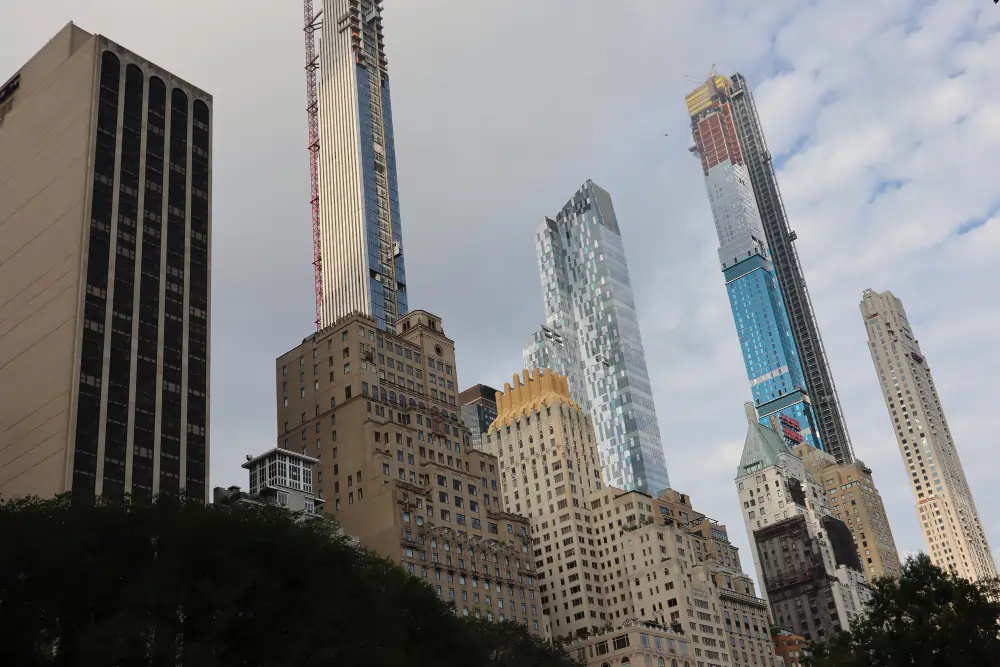Lorem ipsum adipiscing purus fermentum. Praesent vitae quam sed...


The wide skyline, multi-ethnic neighborhoods, and urban culture are only some of the various traits that define NYC. But behind this glammed-up charm lies one crucial problem: the huge consumption of energy by the city and its effect on the environment. Thus, LOCAL LAW 87, part of the Greener, Greater Buildings Plan, instituted a requirement to perform energy audits on large buildings.
These audits are not only regulatory requirements but also one of the most vital tools in bringing energy efficiency and sustainability to New York City. This blog post examines the importance of energy audits under LL87.
One of the most important benefits of NYC building energy audits is the identification of possible upgrades to improve energy efficiency. Auditors go through different systems and make recommendations based on the needs of a particular building. For example, old HVAC systems can be replaced with more efficient versions. After that, old lighting systems can be replaced with LED ones. These steps not only reduce energy consumption but also enhance the comfort of the occupants.
The recommendations of the energy audit may result in tremendous cost savings regarding utility bills. According to the studies, buildings with mandatory audits have a corresponding reduction in the use of energy. This could mean that the costs related to the said audit will be offset by these savings and give way to further financial benefits.
Compliance with LL87 is not optional; failure to do the required audits leads to penalties and fines. By following these regulations, property owners avoid legal repercussions while contributing to the city's sustainability efforts. The fines for failing to comply with the regulations can be huge, and this makes it imperative for building owners to prioritize their audits.
Generally speaking, energy-efficient buildings tend to be more attractive to potential buyers or tenants. Energy efficiency enhancements have the potential to enhance a building's marketability and value in today's increasingly environmentally conscious marketplace. As more tenants seek sustainable places to live, properties that can demonstrate adherence to LL87 will have a competitive edge in an otherwise aggressive real estate market.
Energy audits directly contribute to lowering NYC's GHG emissions. Buildings are highly responsible for NYC's overall GHG emissions, which directly means that any efficiency in buildings will contribute to the achievement of the city's climate goals. Identification and implementation of energy-saving measures will help a building owner reduce their carbon footprint by a big margin.
It starts with trained auditors conducting a detailed examination of the systems within the building, mapping out how much energy is flowing into and out of the structure. Key components during an audit usually include:
Upon completion of the audit, an Energy Efficiency Report, or EER, is generated, summarizing the findings and recommendations for improvements. It needs to be submitted to the New York City Department of Buildings, DOB, for LL87 compliance.
Despite all these benefits, property owners face some potential stumbling blocks in maintaining compliance with LL87.
Costs of retaining qualified auditors, as well as fees and disruptions created by recommended building changes, create a barrier against audits for certain owners. First of all, one must treat these fees not just as expenses, but rather as investments that have the potential of producing long-term cost savings on utility bills, thus offsetting original fees significantly.
Many buildings have intricate systems that require specialized knowledge to evaluate effectively. This complexity can lead to misunderstandings or misinterpretations during the audit process. Building owners should ensure they work with reputable auditors who have experience in their specific type of building.
Coordinating schedules for audits can be challenging, particularly in occupied buildings where tenant disruptions must be minimized. To mitigate this issue, building owners should plan audits during off-peak hours or consider phased approaches that allow for continuous occupancy.
Energy audits are going to be increasingly important in the near future as NYC pushes toward sustainability. With additional regulations concerning carbon emissions set for the next several years - like those specified within LOCAL LAW 97 - building owners must look to comply under LL87 to prepare for future requirements.
Besides, technological developments make it easier than ever to conduct proper audits using data analytics and smart building technologies. These innovations enable real-time monitoring of the performance of buildings, thus enabling proactive management strategies that enhance the energy efficiency NYC buildings even further.

The integration of technology in the energy auditing processes has changed the way things are done. For example, thermal imaging cameras help in the identification of insulation inadequacies and air leaks in a building envelope, while smart meters provide real-time information on energy usage patterns, hence helping auditors to identify specific areas where savings can be made.
Also, software solutions interpret audit information more accurately than any other method could, using predictive analytics to show the property owner where to make upgrades that provide the greatest return on investment.
LOCAL LAW 87 energy audits are important for the betterment of NYC buildings' efficiencies, supporting wider environmental goals in the process. They provide great insight into how properties consume energy and provide actionable recommendations that can lead to significant cost savings and reduced emissions.
For building owners navigating LL87 compliance NYC, embracing these audits not only meets regulatory requirements but also positions them as responsible citizens, ultimately contributing to a greener future for New York City as a whole. By giving priority to energy efficiency in NYC buildings, stakeholders will be able to ensure that they remain competitive while playing their part in combating climate change.
Lorem ipsum adipiscing purus fermentum. Praesent vitae quam sed...
Lorem ipsum adipiscing purus fermentum. Praesent vitae quam sed...